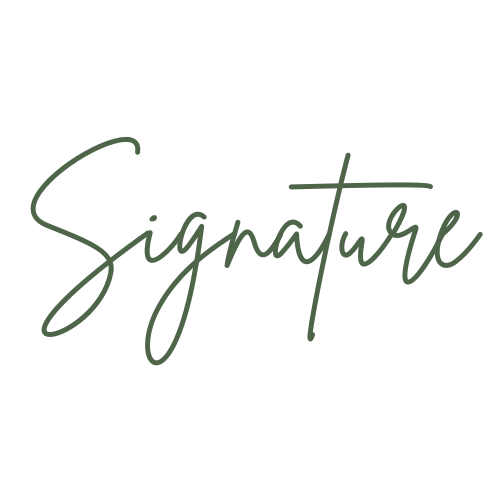The ROI on Art Authentication: Is It Worth It?
For many collectors, art authentication feels like a necessary hurdle—a costly, time-consuming process that may or may not pay off in the long run. So, is it actually worth authenticating your artwork? The short answer: yes, but only in the right circumstances.
Authentication isn’t just about confirming whether a painting is real; it’s about establishing market credibility, increasing resale value, preventing legal disputes, and unlocking the true potential of an artwork. However, not every piece is worth the investment, and understanding the cost of art authentication can help collectors make informed decisions.
At Signature, we believe in transparent, research-based authentication—not quick opinions or empty certificates. Here’s how authentication can impact your artwork’s value, and how we determine whether the process is worthwhile.
How Authentication Increases the Value of Your Artwork
If an artwork has no documented history, no expert analysis, and no established attribution, buyers will hesitate—and rightly so. Unauthenticated works often sell for a fraction of their potential value.
What Happens When an Artwork is Authenticated?
It can be confidently attributed to an artist, significantly increasing its market value.
It becomes eligible for higher-end sales, including major auction houses and blue-chip dealers.
It gives buyers confidence, making the artwork easier to sell and more desirable.
Example: A painting previously sold as an "Unknown 19th Century Landscape" might be worth thousands more if research confirms it was actually painted by a known Hudson River School artist.
Avoiding Costly Legal Disputes and Rejections
One of the biggest misconceptions in the art world is that a Certificate of Authenticity (COA) guarantees legitimacy—it doesn’t. Major auction houses, dealers, and collectors don’t rely on COAs; they require expert-backed research and provenance documentation.
How Authentication Protects You from Disputes:
Ensures that a painting isn’t misattributed or falsely represented, reducing the risk of lawsuits.
Prevents costly rejections from major auction houses that won’t list works without proper research.
Strengthens title ownership and provenance, avoiding future claims over rightful possession.
Without authentication, an artwork with unclear origins or doubtful attribution can be challenged, making it difficult (or impossible) to sell at full market value.
The Cost of Art Authentication: What to Expect
One of the most common questions we receive is: How much does art authentication cost?
At Signature, our pricing is based on the time, effort, and complexity of research required—not on the artwork’s potential value. Unlike commission-based pricing, which could incentivize firms to authenticate works for financial gain, our fees are due upfront to ensure a fair, unbiased process.
How Our Pricing is Structured:
We do not work on commission—our fees are not tied to the outcome of authentication.
Research costs vary based on the level of analysis required, from basic comparative studies to advanced scientific testing.
We only recommend authentication for works with a potential value of $5,000 or more.
More expensive research methods, such as scientific analysis, are only suggested for works valued at $50,000 or more.
Why We Don’t Work on Commission
Authentication is only meaningful if the process is unbiased and research-driven. If we were only compensated for authenticating artworks, it would create a conflict of interest—our opinions would not be as well-respected in the industry, and the trust that auction houses, dealers, and collectors place in our work would be compromised.
Additionally, our research team must be fairly compensated regardless of whether a painting is deemed authentic or not. We dedicate the same time, effort, and resources to proving why a work is not authentic as we do when building evidence to support authenticity. Our goal is always accuracy, not sales potential.
What You Get from an Expert Authentication Report
At Signature, we don’t issue a detailed authentication report, recognized by major auction houses, galleries, and collectors.
Our Authentication Process Includes:
Comparative Analysis – Evaluating the artwork against known works by the artist.
Provenance Research – Tracing ownership history and verifying documentation.
Scientific Testing (if needed) – Analyzing pigments, materials, and hidden layers.
Market Analysis – Assessing how authentication could impact resale potential.
Unlike many competitors, our reports are thorough, unbiased, and respected in the art market—because they are built on solid research, not just an opinion on paper.
When NOT to Authenticate an Artwork
While authentication can be highly beneficial, it’s not always necessary. If an artwork is:
A decorative or mass-produced piece with no known historical value.
Valued under $5,000, where research costs may exceed potential gains.
Already authenticated by a recognized artist’s foundation (unless additional research is needed).
In these cases, authentication may not be worth the investment—and we will always advise clients honestly on whether or not to proceed.
When Does Art Authentication Pay Off?
For the right artwork, authentication can be a game-changer. Here’s what you’re really paying for:
Higher resale value – Authenticated works typically command significantly higher prices.
Stronger marketability – More likely to be accepted by auction houses and serious collectors.
Legal protection – Prevents disputes, rejections, and future challenges to ownership.
Expert-backed credibility – An authentication report from respected professionals carries far more weight than a COA.
For collectors, dealers, and investors, authenticity is everything—and authentication is the key to unlocking an artwork’s true worth.
Thinking About Authenticating Your Artwork? Let’s Talk.
At Signature, we provide expert comparative analysis, provenance research, and scientific testing to determine whether authentication is right for you.
Transparent pricing—no commissions, no inflated fees
Respected research—trusted by auction houses and collectors
Honest guidance—we only recommend authentication when it’s worth it
If you’re unsure whether authentication is the right move, we can help you evaluate your options. Contact us today.
